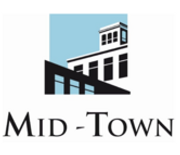Everything There Is to Know about Loan Commitments
A loan commitment is a commitment made by a commercial bank or other financial institution to let a company or individual borrow a specific money amount. Regular consumers and even corporations can benefit from a loan commitment for a purchase they need.
During an open-end loan commitment, the loan can be a lump sum or a credit line the borrower can draw on as needed. Other factors revolving around loan commitments can get tricky sometimes. Read on to learn more about them.
Defining a Loan Commitment
Lending commitments are dependent on the borrower’s creditworthiness and the value of some type of collateral in the case of a secured loan. This collateral might be a home in the case of individual consumers. Afterward, the funds under the loan commitment can be used up to the agreed-upon amount by the borrowers.
Although the interest rate on a secured loan commitment may be lower, this form of loan requires you to put up collateral. If you cannot repay the loan, the collateral may be forfeited.
Types of Loan Commitments
Secured Loan Commitment
A secured commitment is usually backed by collateral and is dependent on the borrower’s creditworthiness. A secured credit card, which uses money from a bank account as collateral, and a home equity line of credit (HELOC) are only some of the examples of open-end secured loan agreements for consumers.
The credit limit for this type of loan commitment is considerably higher than an unsecured one because the value of the secured asset influences it. In addition, a secured loan commitment may have a lower interest rate and a more extended payback period than an unsecured loan commitment. On the other hand, the approval process usually necessitates more.
The lender maintains the collateral’s deed or title until the loan is fully paid or places a lien on the asset. They may be forced to take over ownership of the secured asset and sell it, with the revenues being used to repay the loan in case of loan default.
Unsecured Loan Commitment
Loan commitments with an open-end are flexible and can satisfy short-term debt obligations or cover financial emergencies. Furthermore, because HELOCs often have low-interest rates, they may be more economical to pay down.
Borrowers who take out money but cannot repay the loan may be forced to surrender their collateral due to a secured loan obligation. For example, this could result in their losing their home. The interest rate on unsecured loans is higher, making borrowing more expensive.
The Pros and Cons of a Loan Commitment
Loan commitments offer more flexibility and benefit individuals who need immediate financial coverage. A HELOC also has a relatively lower interest rate, making it easier for you to pay off the total amount of the loan.
Keep in mind that obtaining more money than you can repay in a secured loan commitment can lead to the acquisition of your collateral and loss of a valuable asset. On the other hand, unsecured loan commitments tend to be pricier, which potentially makes it more difficult to finish paying off your loan.
Conclusion
Loan commitments serve a variety of purposes for diverse individuals and organizations. However, since getting one is a major financial decision, it will help you to consider the information we have mentioned above to make the most out of this opportunity.
If you are looking for ,installment loans in Decherd, TN, turn to Mid-Town Loans. We understand the time-sensitive need for help when short on funds. Whether you are looking to build or rebuild credit, consolidate a few bills, or get yourself out of a bind, we try to simplify the borrowing process. Apply now!
